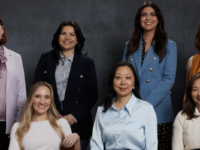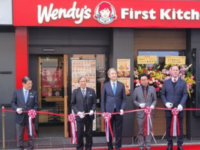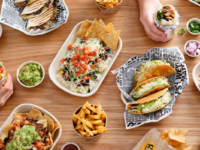The 570 Australian franchisee owners of Red Rooster, Oporto and Chicken Treat stores earn an estimated $135,000 each per year, according to franchisor Craveable Brands, which is fighting back against claims of struggling franchisees.
Sales in franchise stores are also growing by more than four per cent per annum, the franchisor said.
This is in direct contrast to claims that some store owners in the group are on the point of bankruptcy.
The franchisor’s announcement is intended to correct what Craveable describes as “false assertions” made by a small group of store owners, badged as Franchisee Association of Craveable.
Craveable Brands CEO Brett Houldin said on Friday 4 May the overwhelming majority of the organisation’s franchisee owners were happy with the support they received in areas such as financial assistance, training, marketing, IT, store design and market access.
“Our store owners earn on average $135,000 per year with annual sales growing by 4.3 per cent per year, which is 59 per cent more than the average $84,600 full-time worker in Australia,” Houldin said. “That makes claims of stores nationwide on the verge of collapse a ridiculous assertion.”
However the Franchisee Association of Craveable has made stark claims in its submission to the parliamentary inquiry into the industry-governing regulation, the Franchising Code of Conduct.
According to the franchisee association two franchisees have recently become insolvent, and “many more are on the verge of bankruptcy”.
The franchisee submission alleges Craveable Brands has not acted in good faith on a number of issues including cost of goods and unreasonable rebates from suppliers, conflict of interest within own brand, lack of appropriate marketing, and Red Rooster delivery.
As an example of costs of goods, the franchisees suggests beverages can be purchased for a better price at local supermarkets, with Mount Franklin water costing $7 more per carton through Craveable Brands than at an IGA store.
“Many stores are running heavily discounted prices on beverages. It begs the question ‘where is national purchasing power gone for Craveable?'”, the submission states.
In response to the franchisee claims, Houldin said Craveable Brands was committed to the profitability and success of its franchise partners by helping them lift store performance and improve their profit margins.
“One way we help out store owners is through our buying power, with recent tenders delivering additional financial benefits of $11,000-$25,000 per store per year,” he said.
“Of course if store owners believe they can buy the same quality goods at a cheaper price elsewhere we are happy to consider that.”
But Houldin claims the FAC, which he believes represents just two per cent of all Craveable franchisee owners, has never made contact with Craveable with any of their alleged grievances.
Oporto founder Antonio Cerqueira who continues to work as a consultant for the brand has expressed his disappointment that some franchisees are struggling.
Cerqueira told Fairfax Media, “It does make me sad,” he said. “I am the founder, when I hear that, my goal was always to work with the franchisees and for them to work with the franchisor, that’s the way it works. They need one another, you can’t do it separately.”
Craveable points out it has a best practice framework to support its franchisees including:
- extensive induction and development programs
- ongoing coaching and training through a business consultant structure
- consistent and regular state meetings
- a Franchise Advisory Council (FAC)
- annual conferences to learn, collaborate and build strategies
One franchisee who wished to remain anonymous has shared his positive perspective of Craveable Brands.
“On the scale of franchisors that I am aware of it is a pretty good franchise to work with,” he told Fairfax Media. “Like any other industry we have our fair share of dills who come in and wouldn’t know how to run a business.”
He pointed out the importance of franchisees understanding business and driving their own franchise.
“The final thing you also must understand is you can’t rely on someone else to do it for you,” he said.












